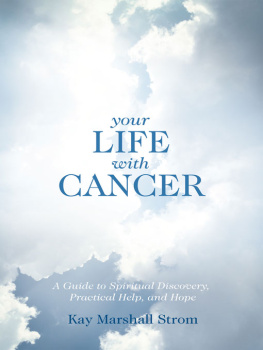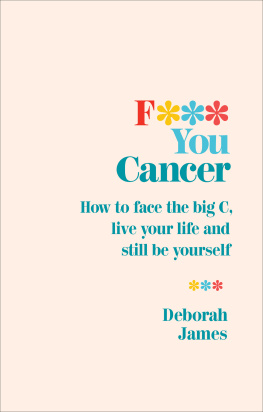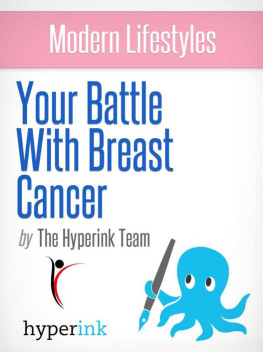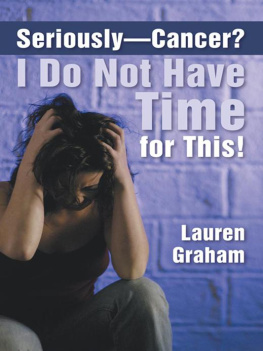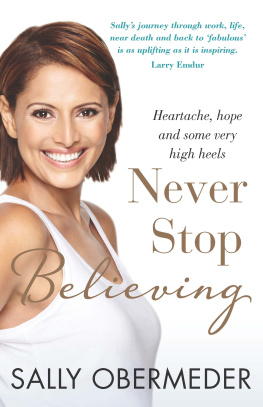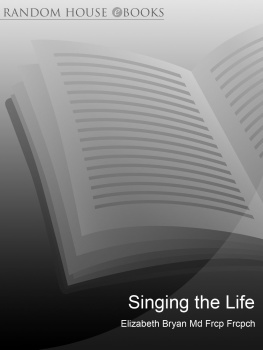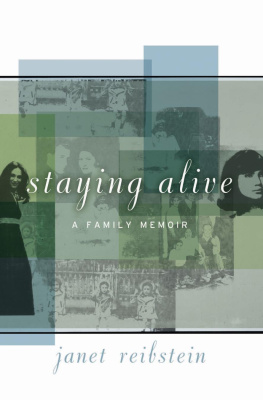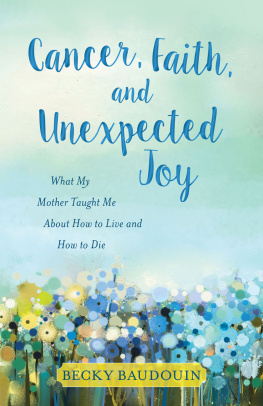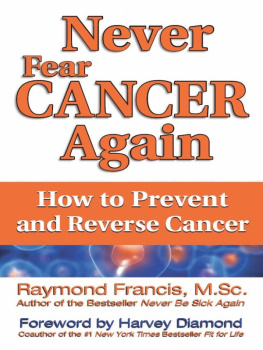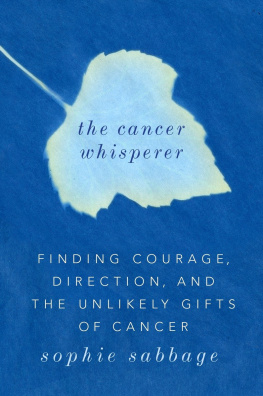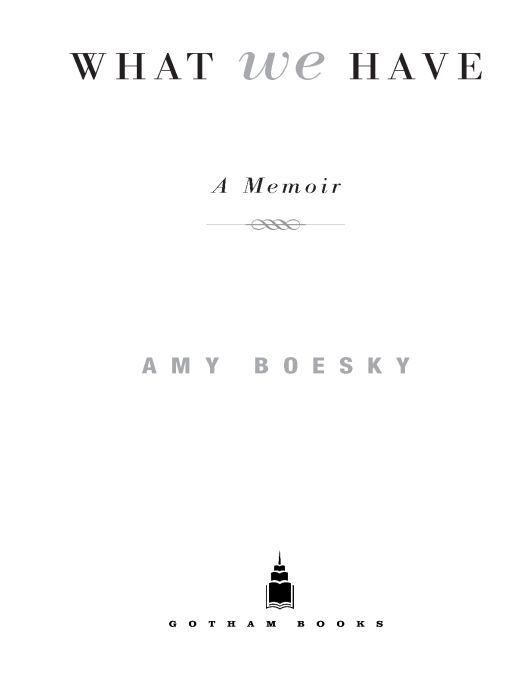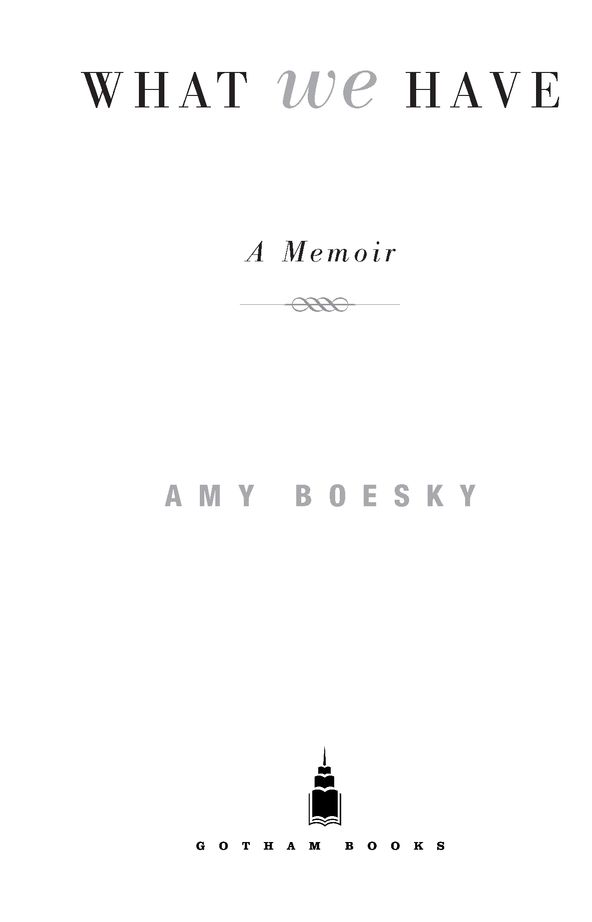Table of Contents
For Sylvia, Pody, Gail;
for my mother, Elaine;
and for the girls.
PROLOGUE
ON MARCH2 5 , 1 9 9 3 , AT the end of a long, unusually snowy winter, I got a letter from the chair of the Department of Preventive Medicine and Public Health at Creighton University. Theyd been following the cluster of cancers in our family since the 1980s, and they wanted to report what theyd learned. They listed statistics, numbers, names of first- and second-degree relatives. I read the letter twice. I looked down at Elisabeth, our newborn, who looked back at me with that uncanny infant mixture of myopia and focus. Sacha, our toddler, was upstairs napping.
I folded the letter up and put it away.
I knew this was big news. Even in my postpartum haze, I got that.
But there was a lot I couldnt fathom. I didnt realize how much the story wed grown up with was about to change, how much of a difference it would make, rearranging what we knewwhat we thought we knewabout our family history. Seeing connections where we hadnt before. Seeing fissures and breaks where before thered been smooth, connecting lines.
THIS STORY IS ABOUT WHAT its been like for one familymineto live with risk.
It isnt really a cancer story, or a survivor story, though it has cancer and surviving in it. Instead, its a previvors story. A previvor is someone who doesnt have cancer, but has a known (elevated) risk for it, discovered through family history or through diagnosis with a genetic mutation. Thats good news. If youre a previvor, you dont have anythingat least, not yet.
The bad news is, that means you dont have anything to fix or get better from. You can diagnose being a previvor, but you cant treat it. There are things you can do, protocols to follow. But the previvor part doesnt go away. It just becomes part of who you are.
Previvors are a new groupthe word hasnt been around for longbut were growing in number every day. By the time this book is finished, there will be thousands more of us. Its peculiar and compelling, this glimpse aheadin some ways a curse, in others, a gift.
I used to think all my favorite words began with pre. Preface. Prepare. Prevaricate. Pregnancy (that one doesnt belong etymologically, but still). Pre for prior to; earlier than. Ahead of. Ive always loved being early: the first to board the plane; the first to get a new piece of technology. The first to plan. Preview. Premonition. Prevent.
Would I have chosen this kind of preview on purpose?
I go back and forth. I talk about it with my sisters. Some days, the answer, emphatically, is no. Who wants to know her genetic destiny and have to live with the consequences? Who wants to sit down and tell her daughters about this? Girls, guess what? We have this gene
Other days, Im more upbeat. I tell myself having to live with consequences isnt the point. Its getting to live. Maybe even choosing to live. For that, seeing ahead is worth it.
Two different points of view, and I have both.
Theres a shaped poem Ive always liked by George Herbert which modern editors call Easter Wings. Most editors lay it out vertically, so the two stanzas (shaped like triangles) stand, inverted, on a single page. Set like that, it looks like an hourglass. But if you turn the poem sideways, it looks like wings.
Thats how it is for me, thinking about the future. Two different shapes. One holding time; the other escaping it. One suggesting fragility, confinement; the other, something transcendent. Turn it one way, you see an hourglass. Turn it the other way, and you see wings.
PART I
Why do we remember the past, but not the future?
Stephen Hawking, A Brief History of Time
Seize the Day
MY FRIENDS FROM GRADUATE SCHOOL couldnt believe I was having a baby.
Now? they asked.
It wasnt the what of a baby, it was the when.
WellI guess theres never a perfect time, my friend Annie said after a pause, by which I think she really meant, Are you insane? Annie, who teaches Literature and Trauma at Penn, had been two years ahead of me in graduate school and was much closer than I was to turning her dissertation into a book. Mine, Time and the Early Moderns, was still in pieces.
She sounded mystified, though I could tell she was trying to be supportive. Im not exactly young for this, I reminded her. In seventeenth-century Britainmy fieldI could have been a grandmother already, having married at thirteen, with a dozen children under my belt.
But in academia, thirty-two was considered young. I wasnt even halfway through the six-year stretch before I came up for tenure. I could sense Annies unasked question: Why have a baby now, when Jacques and I had been married less than a year?
I didnt want to get into it with Annie, but I had a reason. My biological clock was set way ahead. Id grown up in a high-risk cancer family, and Id always known if I wanted children, I had to get going. I had a deadline, and it was looming closer all the time.
In my case, there was no question of if. Ive always wanted kids. It used to be an abstract, maybe-one-day thing. But after Jacques and I met, I started thinking about babies in earnest. Names and potential personalities floated through my head before sleep. I started doing all the predictable and embarrassing thingsstopping strangers to exclaim about the content of their strollers; picking up miniature-sized shoes in Marshalls and turning them over like talismans. I even bought a copy of What to Expect When Youre Expecting. Good planners, those authors. There was a whole chapter devoted to people like me called Before You Conceive. Vitamins to take. Chemicals to avoid. What to expect when you expect to be expecting.
Planning wasnt the right word for this. It was more like compulsion.
I didnt meet Jacques until I was twenty-nine, and I wanted not just one baby (greedy girl) but two. In a different lifetime, with a different genetic makeup, I would have wanted morea gaggle, a flock. Even as it was, we needed to get going.
I had a timeline. In my family, it was all mapped outaround age six or seven, you got glasses; around eighteen or nineteen, your wisdom teeth came out; and by age thirty-five, it was time to take out your ovaries. We were all on the same schedule, but my sisters (Sara, two years older; Julie, four years younger) had been better about getting their lives in order early. I was the laggard. Id spent half my twenties in rare books libraries, which takes a toll on your social life. Besides, you cant hurry love, as the great Motown song reminds us. And as I kept reminding my mother.
Once Id found love, though, I was good to go. I was thirty-one when Jacques and I got married. The way I saw it, we had four yearstwo per baby.
The trick was not to lose focus. Im a born plannerI love thinking ahead. Jacques, on the other hand, thinks planning and over-planning are more or less the same thing. By the time I realized how great a premium he puts on spontaneity, we were already in love, and what could we do? Forget that hes from South Africa and Im from Detroit, or that he loves numbers and newspapers, and I love poetry. The real difference between us is how we deal with the future. Its like the Montagues and the Capulets, and as long as were together (which given that weve promised each other till-death-do-us-part, I hope is for many, many years), this aspect of our life together will drive us both to distraction.


